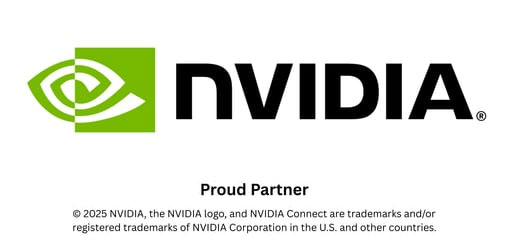The drive toward European data sovereignty is no longer theoretical – it’s very much a board-level agenda. Increasingly, chief executives are demanding cloud and AI infrastructure that keeps data and control over it firmly within Europe.
This shift is more than geopolitics. It’s about trust, risk management, compliance and competitiveness. Let me walk you through what’s driving this change – and what it means for decision-makers.
The "Cloud Control Gap" and Boardroom Repercussions
A recent Gcore report highlights a growing trend: EU companies are auditing their cloud providers specifically to assess jurisdictional risk in 2025. The concern isn’t just performance, it’s the potential loss of control. Providers headquartered outside Europe might be compelled to hand over data under foreign laws, even if the storage is EU-based. gcore
CEOs now see data sovereignty as essential to continuity, compliance and maintaining customer trust. It’s a clear C-suite concern with financial and reputational dimensions.

Geopolitical Pressure: CEOs Are Responding
TechRadar Pro reports that 84% of UK IT leaders see geopolitical risk from US tech dependence as a real threat. That same signal is reaching CEOs who now demand European-based infrastructure – a strategic hedge, not just a marketing talking point. TechRadar
What may once have been “nice to have” has become a board-level demand. Europe can’t outsource its sovereignty if it wants to remain sovereign.
Sovereign Cloud Gains Momentum
The landscape is evolving quickly, and the Bog Tech is desperate to keep the customers locked in:
AWS European Sovereign Cloud will be entirely governed by EU-based personnel, infrastructure and leadership, launching by end-2025. It promises operational autonomy and compliance with EU laws. Amazon TechRadar
Google is expanding its EU “sovereign cloud” offerings, including data localisation, stronger cybersecurity and partnerships with local firms like Thales. Financial Times
Microsoft announced plans to expand EU data centre capacity by 40%, with a pledge to challenge any US legal orders that threaten European customer infrastructure. AP News
Don’t get fooled, though – this is all just smoke and mirrors. The US legislation still applies to these companies, no matter where the data is stored. Microsoft already tried to fight the US law, and lost, bitterly. But what this does show is that even hyperscalers acknowledge data sovereignty is no longer an edge case – it’s a mainstream executive priority.
Sovereignty with a Price Tag - And a Payback

Building locally comes at a cost, but CEOs know what those costs prevent:
Gcore notes sovereign cloud boosts market reach, it makes financial sense when serving regulated sectors across the EU. gcore
Keepit reports a heavy cloud concentration: 97% of Europe’s platform infrastructure is run by US or Chinese providers. The dependency exposes firms to foreign laws, potential access demands and compliance risks. Keepit
The investment can safeguard regulatory access, customer trust and reduce unforeseen legal exposure. For many CEO-level investors, that’s a justified premium.
Regulatory Tailwinds & Realism
The EU’s Digital Compass strategy and laws like GDPR, NIS2, and the upcoming AI Act are all pushing in the same direction: local infrastructure, local governance. ESCP
Yet ambition must meet reality. One recent survey revealed only 16% of EU tech and policy leaders believe true digital sovereignty can be realised in five years wire. Ambition is one thing, execution another. CEOs must pair vision with practical investment and collaboration. North Atlantic can help with this transformation. Partnership with NVIDIA gives North Atlantic an advantage with the hardware.
What CEOs Are Doing - And Should Do
✅ Perform a cloud jurisdiction audit
Track where your data lives, who controls it and under what legal frameworks. Gcore recommends this as phase one. gcore
✅ Build a sovereign cloud roadmap
Decide which workloads must stay on EU soil – start with regulated datasets and sensitive intellectual property.
✅ Embrace sovereign cloud offerings
A hybrid approach can work: Keep your core services local, while non-sensitive workloads run with international suppliers, if you must, with contractual safeguards.
✅ Test Europe-based alternatives
Local sovereign clouds offer EU-located infrastructure under European law.
✅ Elevate governance
Make data sovereignty a board-level dashboard metric, with risk appetite, cost-benefit frameworks and alignment to broader strategic goals.
The Bottom Line
This is not a technology decision; it’s a strategic pivot. CEOs must ask: Does our infrastructure reflect our commitment to sovereignty, or are we outsourcing risk?
A strong sovereignty strategy reduces legal uncertainty, addresses growing geopolitical pressure and builds enterprise resilience.
It sends a message: We control our data destiny, bolstering trust with partners, regulators and the public.
Europe’s moment is now. CEOs who back sovereignty with real infrastructure choices – local data centres, EU-based cloud partnerships, hybrid governance – will shape the future. Others risk being tethered to dependency and exposed to unpredictable policy shifts.
Victor A. Lausas
Chief Executive Officer
Subscribe to North Atlantic’s email newsletter and get your free copy of my eBook,
Artificial Intelligence Made Unlocked. 👉 https://www.northatlantic.fi/contact/
Discover Europe’s best free AI education platform, NORAI Connect, start learning AI or level up your skills with free AI courses and future-proof your AI knowledge. 👉 https://www.norai.fi/






